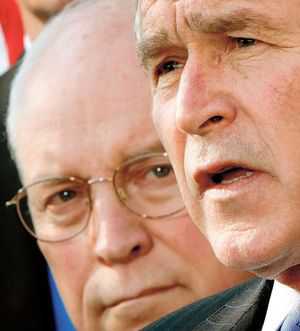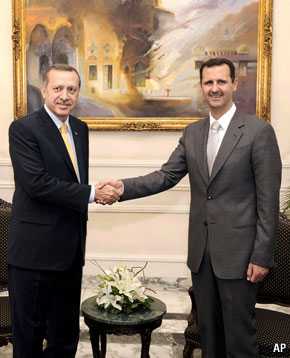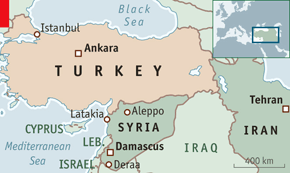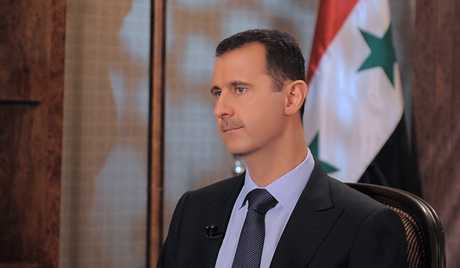
Banu AVAR
The Syria‑Turkey Friendship Committee is a non‑governmental civilian organization formed by the Turkish and Syrian citizens living in Syria to halt the latest imperialist attack. Working with the Syrian business and with official consent they have invited a group from Turkey to visit Syria. I was among the invitees. The head of the committee Prof. Dr. Mehmet Yuva said that in establishing this group, he had extended invitations to several members of the parliament and politicians from TBMM (Turkish National Assembly), several people from AKP (Justice and Development Party), CHP (Republican People’s Party), MHP (Nationalist Movement Party), Saadet Partisi (Felicity Party) and journalists with diverse views. I helped him to reach some people he had difficulty with. Because I believed it was essential that a visit of this kind between neighbors and next of kin took place. Without prejudice, members from all news and television organizations, like Nazlı Ilıcak, Reha Muhtar, Fatih Altaylı, Salih Tuna, İbrahim Karagül, Balçiçek İlter, and Ahmet Hakan have been invited. I have directly contacted some of these names.
Several academicians, experts, and leaders of unions like Kamu‑Sen (Public Servants Union) were invited. It turned out that most did not even bother to respond. It was understood, in‑between the lines that the worry of “what the superiors would say” was the prevailing reason.
Living under the imperialist menace, western activist and armed gangs ruling the streets, with terrorist activities boiling out everywhere, Syria is another link in the chain of “Arab Spring” operation that is aimed to disintegrate the region. Different western intelligence gangs have been trying to explode bombs in Dara, Deir Ez Zor, Latakia, and Damascus. Government has placed army under state of alarm to counteract these terrorist activities.
Established for years the outside the country, the ‘opposition’ in concert with western intelligence elements started their attacks. Inside, the ‘peaceful (!)’ demonstrators have laced streets with blood, burned public buildings, and threw down corpses of the people they killed from bridges…In Syria, terrorist armies and intelligence agents are running loose. But in the global media the news is summarized in one sentence: ‘The dictator with blood on his hands against democratic demands of the Syrian people!’
The question is: Why those who are making threats now never spoke of oppression, cruelty, and antidemocratic measures for tens of years until 2011?
The answer in their lexicon is ‘conjuncture’!
We know the reason: It is time for the Middle East! It is time to move and divvy up from Iraq onwards. The energy sources, waterways, strategic regions will be divided among the mobs in proportion to their competitive forces!
‘We have decided that you are guilty and you will be punished even though we know you are innocent’ is the verdict by the mob. In this game, they want Turkey to become the executioner. When this verdict permeated in the news a silent scream went up everywhere.
Turkish nation will ‘RESIST’ an intervention ‘AGAINST’ Syria, their neighbor and their next of kin.
Perhaps, those who hear this message best are the men of the West inside us, their representatives, and collaborators.
Those struggling inside the West’s straitjacket failed to place the nation in a straitjacket… And, their future is uncertain as well…
It is not known who will prevail in the global gang wars. In this mayhem, two brotherly nations, regardless what the rulers say will help each other. With that, during the last century, just as the entire region was about to change hands they were able to redirect the history.
In this region, getting Muslims to kill Muslims, and by inciting ethnic wars to divide and conquer for reaching the energy sources in Asia are both old games!
Eurasia has powerful trumps against this game. And at the right time, at the sharpest turn of this heinous game, that is on the Turkey‑ Iran‑Syria link the West’s game will be spoiled one more time.
That is why we trust our people and peoples of other friendly countries that are next of kin. We are going to hold hands against the dirty terrorist games, discuss our problems among ourselves without the intervention of Western hyenas. Imperialism was applauding when they were trying to commingle Turkish delegations with those of Armenia, Georgia, Greece, and Israel, when they were declaring journalist as buddies… Now, they started a smear campaign when intellectuals of these two neighboring and next of kin countries are coming together against a West imposed adventure.
Only by mutual assistance of the countries of the region the games of the global gangs can be spoiled. This is why a rapprochement by Iran, Syria, Turkey, and Russia scares hell out of the Westerners and their collaborators. Provocations, assassinations, and terrorist acts are staged. A wedge is inserted between the nations of the region. The voices of those running these smear campaigns are spread from the TV screens: ‘They are Syrian agents! Ergenekon’s[1] Syrian branch!’ An old Turkish saying, ‘ne Arap’ın yüzü ne Şam’ın şekeri!’ literally translated, ‘neither Arab’s face nor sweets of Damascus’ is used to describe a situation where efforts to gain something is not worth the trouble comes with it.
Yes, we will make the effort, and we will face the trouble! They are our next of kin… Our mission is neither supporting Bashar Al-Assad nor defending the actions of the Baas party…Neither is pristine white…But with the Syrian people, our friends and brothers, we can get out of the trap set in the region. A conflict between the nations, upsetting all balances, will result in an instability that will reign for centuries in the region. Several more impasses in the Middle East like the Israeli one will be created. And an intervention like this will annihilate Turkey… This is why we are saying that:
If Syria falls Lebanon falls, if Syria falls Iran falls, if Syria falls Turkey falls…The key to Eurasia disintegrates…Those entering through that door will destroy Eurasia.
And without Turkey’s involvement West can not bring its bloody wishes to life.
This is why the Turkish and Syrian wise man, intellectuals, journalists, politicians, artists under the auspices of Syria‑Turkey Friendship movement will call a HALT to this going.
They will not permit our region turn into a bloodbath for imperialist aims.
Those in power in Turkey know very well who is behind the losses of the nation’s sons every day. The head of the snake coming out of Northern Iraq is in Pentagon, in NATO, and in European Union agencies.
If we have to engage in war these are the opponents… Not the nations of the region living under same threat.
__________
[1] Ergenekon is the name given to an alleged clandestine, Kemalist ultra-nationalist organization in Turkey with possible ties to members of the country’s military and security forces.
The real goal of the Ergenekon investigation was not to go after the deep state but to intimidate and silence opponents of Turkey’s ruling Justice and Development Party (AKP), particularly critics of the vast network of Gülen’s supporters known as the Gülen Movement.
17 August 2011
Turkish version





 Rapprochement with Syria has also allowed Turkey to play a bigger regional role. The government came close to brokering a peace deal between Syria and Israel before the plan was scuppered by Israel’s attack on Gaza. Some Turks hoped that engagement with Syria would eventually yank Mr Assad out of the orbit of Iran, his biggest patron, and set him on a path towards reform. (His alleged involvement in the 2005 car-bomb assassination of Rafik Hariri, the Lebanese president, was quietly ignored.) All the more reason for Turkey’s feelings of betrayal.
Rapprochement with Syria has also allowed Turkey to play a bigger regional role. The government came close to brokering a peace deal between Syria and Israel before the plan was scuppered by Israel’s attack on Gaza. Some Turks hoped that engagement with Syria would eventually yank Mr Assad out of the orbit of Iran, his biggest patron, and set him on a path towards reform. (His alleged involvement in the 2005 car-bomb assassination of Rafik Hariri, the Lebanese president, was quietly ignored.) All the more reason for Turkey’s feelings of betrayal.
 Turkey finds its “zero-problems-with-neighbors” foreign policy severely compromised by upheavals in the Arab world. Relations with some of its closest friends, such as Syria, appear to be irrevocably damaged.
Turkey finds its “zero-problems-with-neighbors” foreign policy severely compromised by upheavals in the Arab world. Relations with some of its closest friends, such as Syria, appear to be irrevocably damaged. 